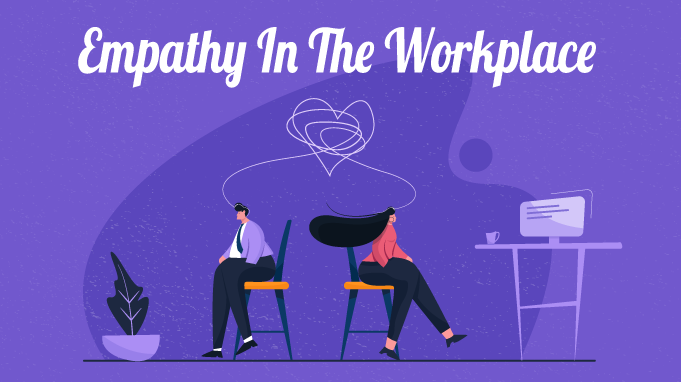5 Crucial Steps To Building Empathy In The Workplace
How would you feel when you enter your office, and nobody gives any heed to your presence? Or doesn't even bother to wish you good morning. That can be disheartening sometimes, right?
It's a human instinct that we like to work in an environment where people are more empathetic and mindful of others' feelings. And it builds from empathy. Empathy is about understanding others' feelings and responding without hurting their sentiments.
Empathy in the workplace is crucial because it helps us understand how others feel, so that we can react to the situation appropriately.
For an organization to maintain a healthy work culture, it is crucial to building empathy in the workplace. Adopting a compassionate tone in the workplace is not simple. It needs a conscious organizational effort. Participation and mindful leadership in initiating empathy are vital.
The development of the organizational culture begins by enhancing people's relationships. Because organizations are concerned with people, they should both create value and be valued at work. Employees want to feel that they are involved, and they rely on empathy for each other.
Though empathy seems challenging to exhibit, here are a few stats from Businesssolver that reveal its impact on business health.
-
77 percent of employees say they'd work longer hours for an empathetic employer.
-
60 percent say they would take a lower salary from a compassionate employer.
-
80 percent of millennials say they would change jobs if their current employer became less empathetic, compared to 66 percent of Baby Boomers.
Here are the steps to building empathy in the workplace
1. Put yourself in other's shoes
Keep an open mind. Don't judge so fast. The smartest of all suffer too. When you encounter a co-worker or a new hire struggling in a situation, try to keep yourself in their position. You know, you have been in such cases too; we all have. Also, often you have no idea how different the roles and responsibilities of your co-worker might have.
The average week for someone in the designing and accounting department will look quite like day and night. Your colleagues may have the same feeling too. Burnout affects 40% of the workers, regardless of the department. If a co-worker, during communication with you, sounds angry, remember the last time you had a rough day.
This perspective would help you take hold of the situation and respond better.
2. Ask the right questions
Always ask the right questions. Empathy at work doesn't always come from being a good listener and asking the right questions to get to the root of your colleagues' problems.
You are saying, "Yeah, I hear you, as you ask your colleagues' thoughtful questions. Workers deserve hearing and understanding of their concerns. When you see an employee in any trouble, it is better to be empathetic and lend your helping hand or just be polite without judgment. They often need a sense of security from the environment around them to tackle their problems better.
When we ask the right questions, we allow ourselves to be empathetic in the situations genuinely and care about the problems rather than being vague and unclear.
3. Are you Listening actively?
How well do you listen when your colleagues come to you with questions and concerns? It takes effort and simplicity to listen actively to your co-workers. Active listening is one of the best ways to show empathy in the working environment. It helps the other person to be heard.
Listen carefully to them. Do not listen just for the sake of it. Only in this way can you understand what the other person is trying to convey.
Please pay attention to their voice and body language. Try to feel what the other person speaks to you. To them, what's essential? This can be particularly helpful for you if you talk about a contentious topic. You do not have to agree with what the others say, but seeing their points is essential.
4. Identify your own unconscious biases
We all have certain preconditions and biases, which in some circumstances can influence how we communicate and how we react. For instance, it can significantly impair your ability to form healthy relationships if you are always depressed and frustrated or find yourself far away.
Therefore, being mindful of our own biases and not seeing others with our colored lenses might be our first step in being empathetic. Our preferences often don't allow us to shift our perspectives for everyone. For example, in similar situations, you might react differently with different people. Your own biases might redirect you to be empathetic to one person and indifferent to the other.
Therefore, identifying our own biases and not letting them interfere in our actions is crucial.
5. Lastly, do the simple exercise: be nice!
We always come across this phrase, be nice! Yes, this is also as simple as it sounds. Treat others as you want to be treated. Do not forget that in relationships, good ways and kindness always win. You will soon notice that if you treat others well, they will treat you the same way. You can build a healthy relationship with your colleagues in this way. Like I have mentioned in the beginning, be the one to wish good mornings to your co-workers, be supportive and have fun.
Over to you
As part of the strategic approach, professionals in the work environment should be mindful of developing their empathy. It is non-negotiable for a high-performance and successful organization with motivated and happy employees.


















